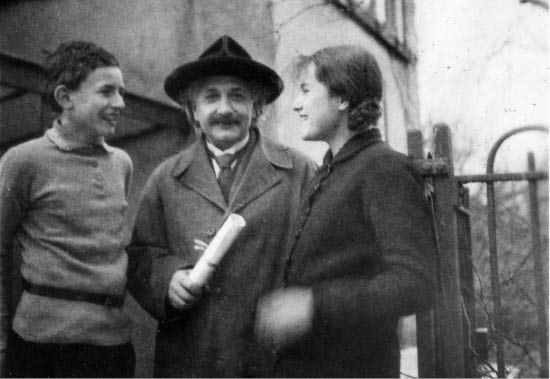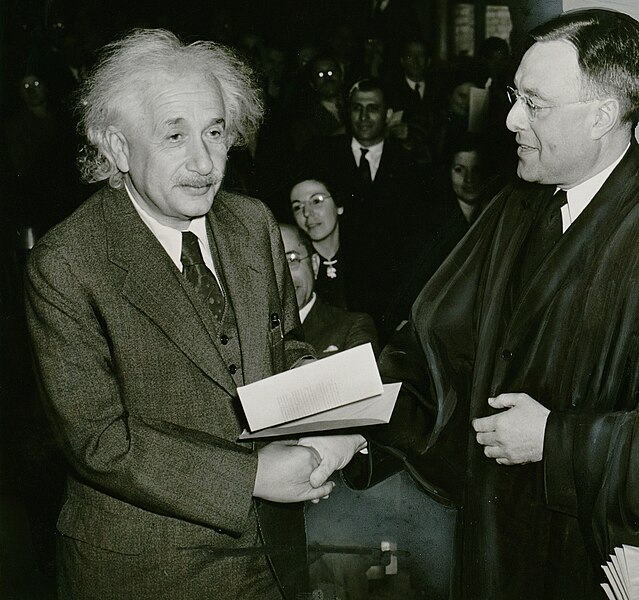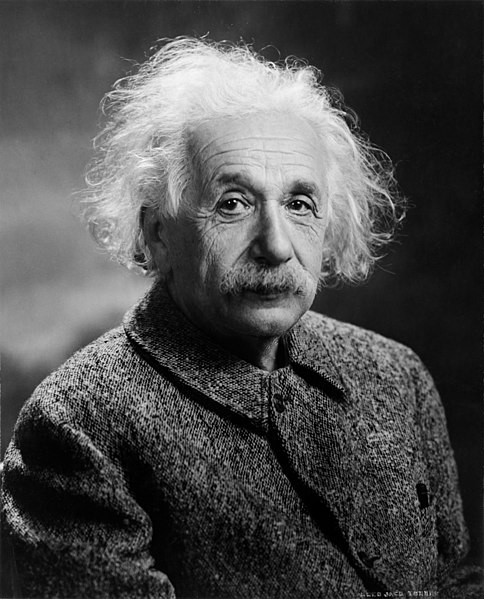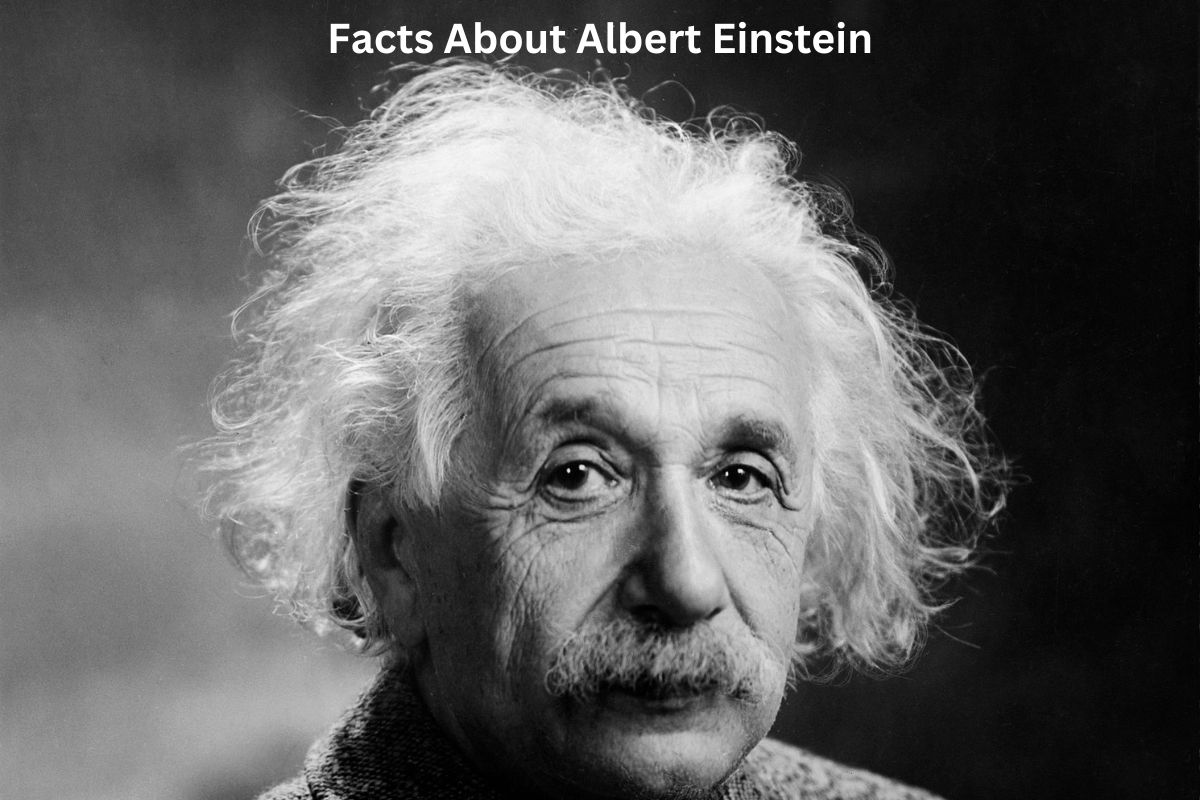Albert Einstein, born on March 14, 1879, in Ulm, Germany, was a renowned physicist whose name is synonymous with genius.
His groundbreaking work in theoretical physics, particularly the theory of relativity and the famous equation E=mc², revolutionized our understanding of the universe.
Beyond his scientific achievements, Einstein was an advocate for peace, civil rights, and humanitarian causes. He left Nazi Germany in 1933, settling in the United States, and continued his influential work until his passing on April 18, 1955, in Princeton, New Jersey.
His legacy extends well beyond his scientific discoveries, shaping both the world of physics and our broader understanding of humanity.
Albert Einstein Facts
1. Born on March 14, 1879, in Ulm, Germany
Albert Einstein was born in the small town of Ulm in the Kingdom of Württemberg, which was part of the German Empire at the time. He was born into a middle-class Jewish family.
Also Read: Albert Einstein Timeline
His father, Hermann Einstein, was an engineer and salesman, while his mother, Pauline Koch, came from a family of merchants. Einstein’s early years were marked by a curious and inquisitive nature, and he showed an early aptitude for mathematics and physics.

2. Swiss citizenship holder
In 1896, when Einstein was 17 years old, he renounced his German citizenship to avoid mandatory military service in the German Army. He moved to Switzerland, where he continued his education and enrolled at the Zurich Polytechnic Institute (now known as ETH Zurich).
It was during his time in Switzerland that he met and married Mileva Marić, a fellow student with whom he would later have two sons, Hans Albert and Eduard.
3. Famous for the theory of relativity
Einstein’s most significant contributions to physics came in the form of his theory of relativity. In 1905, he published his special theory of relativity, which introduced the revolutionary concept that the laws of physics are the same for all non-accelerating observers and that the speed of light in a vacuum is a constant, regardless of the motion of the observer or the source of light.
Also Read: Accomplishments of Albert Einstein
This theory challenged the classical notions of space and time and had profound implications for our understanding of the universe.
In 1915, Einstein formulated his general theory of relativity, which extended his earlier work to include the effects of gravity. The theory proposed that gravity is the result of the bending of space-time by massive objects.
This idea was confirmed through experimental observations, most famously during the 1919 solar eclipse. Einstein’s theory of relativity revolutionized the field of physics and made him a global celebrity. It remains one of the cornerstones of modern physics.

4. Awarded the Nobel Prize in Physics in 1921
Einstein was awarded the Nobel Prize in Physics in 1921 for his work on the photoelectric effect. The photoelectric effect is a phenomenon where electrons are emitted from a material when it is exposed to light.
His explanation of this effect was groundbreaking because it demonstrated the particle-like nature of light, suggesting that light is made up of discrete packets of energy called photons.
This work provided crucial support for the emerging theory of quantum mechanics, even though Einstein is better known for his contributions to the theory of relativity.
5. Held patents, including one for a refrigerator
In addition to his work in theoretical physics, Einstein held several patents. One of his notable inventions was a new type of refrigerator, co-patented with his former student Leo Szilard in 1930.
This refrigerator design used a combination of gases (ammonia, butane, and propane) and had no moving parts in the cooling cycle. It was safer and more efficient than traditional refrigeration methods of the time, but it did not gain widespread commercial success.
6. Worked at the Swiss Patent Office
Before gaining worldwide recognition as a physicist, Albert Einstein worked as a patent examiner at the Swiss Patent Office in Bern from 1902 to 1909. This position required him to review patent applications for various technical inventions.
Despite the demanding nature of his job, he continued to work on his scientific research during his spare time. His time at the patent office provided him with a steady income but also allowed him to ponder questions about the nature of space and time, which eventually led to some of his groundbreaking theories.

7. Developed the equation E=mc²
Einstein’s equation, E=mc², is one of the most famous equations in the world of physics. It states that energy (E) is equal to mass (m) times the speed of light squared (c²). This equation revolutionized our understanding of the relationship between mass and energy, showing that they are interchangeable.
It played a crucial role in the development of nuclear physics and the realization that tiny amounts of mass could release vast amounts of energy, leading to the development of atomic weapons and nuclear energy.
8. Fled Nazi Germany and settled in the United States
In 1933, as Adolf Hitler and the Nazi Party came to power in Germany, Albert Einstein, who was of Jewish descent and a vocal critic of the Nazi regime, faced increasing persecution and threats. He decided to leave Germany and emigrate to the United States.
In October 1933, he accepted a position at the Institute for Advanced Study in Princeton, New Jersey. This move not only saved Einstein from the dangers of Nazi Germany but also allowed him to continue his scientific work in a safe and intellectually stimulating environment.
9. Advocated for peace and civil rights
Throughout his life, Albert Einstein was not only known for his scientific genius but also for his strong moral and humanitarian beliefs. He was a committed pacifist who spoke out against war and militarism. He was an active advocate for disarmament and peace efforts, particularly during and after World War II.
Einstein was also an outspoken supporter of civil rights and racial equality. He publicly denounced segregation and racial discrimination, becoming a prominent figure in the civil rights movement in the United States.
10. Passed away on April 18, 1955, in Princeton, New Jersey
Albert Einstein passed away on April 18, 1955, at the age of 76, in Princeton, New Jersey. His death marked the end of an era in physics, but his legacy continues to influence science, philosophy, and the world at large.
His work fundamentally reshaped our understanding of the universe, and his advocacy for peace and human rights left an indelible mark on society.
